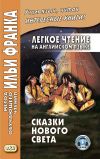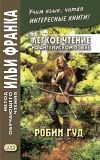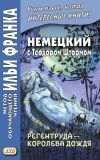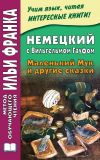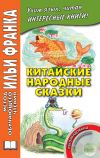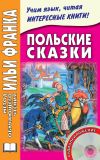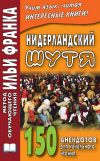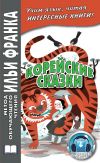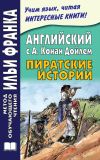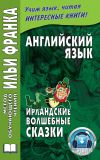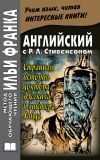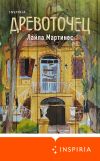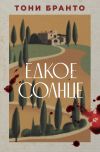Текст книги "Английский с Шерлоком Холмсом. Человек с рассеченной губой / Arthur Conan Doyle. Sherlock Holmes"
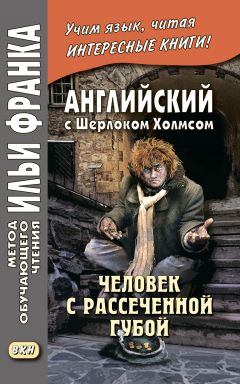
Автор книги: Артур Дойл
Жанр: Иностранные языки, Наука и Образование
Возрастные ограничения: +16
сообщить о неприемлемом содержимом
Текущая страница: 18 (всего у книги 21 страниц)
“On the contrary, your statement is singularly lucid (напротив, ваш рассказ необыкновенно четкий/ясный; statement – заявление, утверждение; изложение, формулировка; отчет; дача показаний; to state – заявлять, утверждать; констатировать).”
“I come to a part of my story now in which I should wish to be particularly so (теперь я перехожу к той части моего рассказа, в которой я хотел бы быть особенно ясным). I am not a very heavy sleeper (я не очень крепко сплю), and the anxiety in my mind tended, no doubt (и беспокойство норовило, несомненно; to tend – иметь тенденцию /к чему-либо/; клониться, склоняться /к чему-либо/), to make me even less so than usual (сделать меня даже менее крепко спящим, чем обычно). About two in the morning, then, I was awakened by some sound in the house (около двух утра я был разбужен каким-то шумом в доме). It had ceased ere I was wide awake (он прекратился прежде, чем я окончательно проснулся; wide awake – бодрствующий; совсем проснувшись, вполне очнувшись от сна), but it had left an impression behind it (но у меня осталось впечатление) as though a window had gently closed somewhere (будто где-то осторожно закрыли окно). I lay listening with all my ears (я лежал и напряженно прислушивался). Suddenly, to my horror, there was a distinct sound of footsteps (вдруг, к своему ужасу, я услышал отчетливый звук шагов) moving softly in the next room (/человека/, мягко ступавшего в соседней комнате). I slipped out of bed, all palpitating with fear (я выскользнул из постели, дрожа от страха), and peeped round the corner of my dressing-room door (и заглянул за угол двери = выглянул из-за двери гардеробной).
“'Arthur!' I screamed (закричал я), 'you villain! you thief (негодяй! вор)! How dare you touch that coronet (как ты смеешь трогать диадему)?'
lucid ['lu:sɪd], anxiety [æŋ'zaɪǝtɪ], listening ['lɪs(ǝ)nɪŋ], distinct [dɪs'tɪŋ(k)t], touch [tʌʧ]
“I am endeavoring to tell you everything, Mr. Holmes, which may have any bearing upon the case, but I beg that you will question me upon any point which I do not make clear.”
“On the contrary, your statement is singularly lucid.”
“I come to a part of my story now in which I should wish to be particularly so. I am not a very heavy sleeper, and the anxiety in my mind tended, no doubt, to make me even less so than usual. About two in the morning, then, I was awakened by some sound in the house. It had ceased ere I was wide awake, but it had left an impression behind it as though a window had gently closed somewhere. I lay listening with all my ears. Suddenly, to my horror, there was a distinct sound of footsteps moving softly in the next room. I slipped out of bed, all palpitating with fear, and peeped round the corner of my dressing‑room door.
“'Arthur!' I screamed, 'you villain! you thief! How dare you touch that coronet?'
“The gas was half up, as I had left it (газ был включен наполовину, как я его и оставил), and my unhappy boy, dressed only in his shirt and trousers (и мой злополучный мальчик, одетый только в рубашку и брюки), was standing beside the light, holding the coronet in his hands (стоял около горелки, держа в руках диадему). He appeared to be wrenching at it, or bending it with all his strength (мне показалось, он изо всех сил то ли дергал ее, то ли старался согнуть; to wrench – дергать; вывертывать, выкручивать). At my cry he dropped it from his grasp and turned as pale as death (при моем крике он выронил ее и стал бледен как смерть; to turn – поворачивать, переворачивать; делаться, становиться, превращаться). I snatched it up and examined it (я схватил диадему и осмотрел). One of the gold corners, with three of the beryls in it, was missing (не хватало одного золотого зубца с тремя бериллами).
“'You blackguard (ах ты мерзавец)!' I shouted, beside myself with rage (крикнул я вне себя от ярости). 'You have destroyed it (ты сломал ее)! You have dishonored me forever (ты опозорил меня навсегда)! Where are the jewels which you have stolen (где камни, которые ты украл; to steal-stole-stolen)?'
“'Stolen (украл)!' he cried.
“'Yes, thief (да, вор)!' I roared, shaking him by the shoulder (закричал я, тряся его за плечи).
“'There are none missing (ничего не пропало/все на месте). There cannot be any missing (не может быть, чтобы чего-то недоставало),' said he.
half [hɑ:f], wrenching ['renʧɪŋ], shouted ['ʃaʋtɪd]
“The gas was half up, as I had left it, and my unhappy boy, dressed only in his shirt and trousers, was standing beside the light, holding the coronet in his hands. He appeared to be wrenching at it, or bending it with all his strength. At my cry he dropped it from his grasp and turned as pale as death. I snatched it up and examined it. One of the gold corners, with three of the beryls in it, was missing.
“'You blackguard!' I shouted, beside myself with rage. 'You have destroyed it! You have dishonored me forever! Where are the jewels which you have stolen?'
“'Stolen!' he cried.
“'Yes, thief!' I roared, shaking him by the shoulder.
“'There are none missing. There cannot be any missing,' said he.
“'There are three missing (не хватает трех /камней/). And you know where they are (и ты знаешь, где они). Must I call you a liar as well as a thief (ты, оказывается, не только вор, но и лжец)? Did I not see you trying to tear off another piece (я сам видел, как ты пытался оторвать еще один зубец)?'
“'You have called me names enough (хватит оскорблений; to call names – оскорблять, обзывать /кого-либо/),' said he, 'I will not stand it any longer (я больше не буду их терпеть). I shall not say another word about this business (я больше ни слова не скажу об этом), since you have chosen to insult me (раз ты решил меня оскорблять; to choose-chose-chosen). I will leave your house in the morning (утром я уйду из дома) and make my own way in the world (и сам буду устраиваться в жизни; to make one's way in the world – делать карьеру, завоевывать положение в обществе).'
“'You shall leave it in the hands of the police (ты уйдешь отсюда только в сопровождении полиции: «в руках полиции»)!' I cried half-mad with grief and rage (я кричал, обезумев от горя и гнева). 'I shall have this matter probed to the bottom (я постараюсь /сделать так/, чтобы в этом разобрались до основания; to probe – зондировать; прощупывать; расследовать, исследовать).'
“'You shall learn nothing from me (от меня ты ничего не узнаешь),' said he with a passion such as I should not have thought was in his nature (сказал Артур с такой яростью, которой я не ожидал от его характера). 'If you choose to call the police (если хочешь вызвать полицию), let the police find what they can (/пожалуйста/, пусть ищут).'
insult [ɪn'sʌlt], police [pǝ'li:s], passion ['pæʃ(ǝ)n]
“'There are three missing. And you know where they are. Must I call you a liar as well as a thief? Did I not see you trying to tear off another piece?'
“'You have called me names enough,' said he, 'I will not stand it any longer. I shall not say another word about this business, since you have chosen to insult me. I will leave your house in the morning and make my own way in the world.'
“'You shall leave it in the hands of the police!' I cried half-mad with grief and rage. 'I shall have this matter probed to the bottom.'
“'You shall learn nothing from me,' said he with a passion such as I should not have thought was in his nature. 'If you choose to call the police, let the police find what they can.'
“By this time the whole house was astir (к этому времени весь дом поднялся на ноги; astir – находящийся в движении; взволнованный, возбужденный; на ногах, вставший с постели; to stir – шевелить/ся/; двигать/ся/), for I had raised my voice in my anger (так как я кричал в гневе; to raise one's voice – повышать голос). Mary was the first to rush into my room (Мэри первой вбежала в мою комнату), and, at the sight of the coronet and of Arthur's face (и при виде диадемы и лица Артура), she read the whole story (она все поняла: «прочла всю историю») and, with a scream, fell down senseless on the ground (и, вскрикнув, упала на пол без чувств; scream – крик; senseless – бесчувственный, без чувств). I sent the house-maid for the police (я послал горничную за полицией) and put the investigation into their hands at once (и сразу же передал дело в руки полицейских). When the inspector and a constable entered the house (когда инспектор и констебль вошли в дом), Arthur, who had stood sullenly with his arms folded (Артур, мрачно стоявший со скрещенными руками), asked me whether it was my intention to charge him with theft (спросил меня, /действительно/ ли я намереваюсь предъявить ему обвинение в воровстве). I answered that it had ceased to be a private matter (я ответил, что это перестало быть личным делом), but had become a public one (и стало общественным), since the ruined coronet was national property (поскольку сломанная диадема является государственной собственностью). I was determined that the law should have its way in everything (я твердо решил, что /делу/ нужно дать законный оборот: «закон должен присутствовать во всем»).
“'At least (по крайней мере),' said he, 'you will not have me arrested at once (ты не дашь арестовать меня сейчас же). It would be to your advantage as well as mine (это было бы для твоей пользы, а также для моей) if I might leave the house for five minutes (если бы я смог выйти из дома на пять минут).'
constable ['kʌnstǝb(ǝ)l], answered ['ɑ:nsǝd], ruined ['ru:ɪnd]
“By this time the whole house was astir, for I had raised my voice in my anger. Mary was the first to rush into my room, and, at the sight of the coronet and of Arthur's face, she read the whole story and, with a scream, fell down senseless on the ground. I sent the house-maid for the police and put the investigation into their hands at once. When the inspector and a constable entered the house, Arthur, who had stood sullenly with his arms folded, asked me whether it was my intention to charge him with theft. I answered that it had ceased to be a private matter, but had become a public one, since the ruined coronet was national property. I was determined that the law should have its way in everything.
“'At least,' said he, 'you will not have me arrested at once. It would be to your advantage as well as mine if I might leave the house for five minutes.'
“'That you may get away (чтобы ты убежал), or perhaps that you may conceal what you have stolen (или спрятал то, что украл),' said I. And then, realizing the dreadful position in which I was placed (затем, осознавая ужасное положение, в котором я оказался), I implored him to remember that not only my honor (я /стал/ заклинать его вспомнить о том, что не только моя честь) but that of one who was far greater than I was at stake (но и честь гораздо более высокого лица поставлена на карту); and that he threatened to raise a scandal (что он грозил скандалом) which would convulse the nation (который потрясет /всю/ нацию). He might avert it all if he would but tell me (он может предотвратить все это, если только скажет мне) what he had done with the three missing stones (что он сделал с тремя пропавшими камнями).
“'You may as well face the matter (посмотри на дело прямо = осознай свое положение),' said I; 'you have been caught in the act (ты пойман на месте преступления), and no confession could make your guilt more heinous (и признание не сделает твою вину более тяжелой; heinous – отвратительный, мерзкий, гнусный, ужасный). If you but make such reparation as is in your power (если ты только попытаешься сделать все, что в твоих силах, чтобы исправить ситуацию; reparation – компенсация, возмещение; исправление, заглаживание /вины/: to make reparation for a wrong – загладить вину), by telling us where the beryls are (рассказав нам, где находятся бериллы), all shall be forgiven and forgotten (все будет прощено и забыто; to forgive; to forget).'
threatened ['θretnd], guilt [ɡɪlt], heinous ['heɪnǝs]
“'That you may get away, or perhaps that you may conceal what you have stolen,' said I. And then, realizing the dreadful position in which I was placed, I implored him to remember that not only my honor but that of one who was far greater than I was at stake; and that he threatened to raise a scandal which would convulse the nation. He might avert it all if he would but tell me what he had done with the three missing stones.
“'You may as well face the matter,' said I; 'you have been caught in the act, and no confession could make your guilt more heinous. If you but make such reparation as is in your power, by telling us where the beryls are, all shall be forgiven and forgotten.'
“'Keep your forgiveness for those who ask for it (прибереги свое прощение для тех, кто в нем нуждается: «просит»),' he answered, turning away from me with a sneer (ответил он, отвернувшись от меня с усмешкой).
“I saw that he was too hardened for any words of mine to influence him (я видел, что он слишком ожесточен, чтобы какие-либо мои слова могли повлиять на него; to harden – делать/ся/ твердым; бесчувственным, бессердечным; ожесточать). There was but one way for it (оставался лишь один выход). I called in the inspector and gave him into custody (я пригласил инспектора и передал Артура под стражу). A search was made at once not only of his person (немедленно был проведен обыск не только Артура) but of his room and of every portion of the house (но и его комнаты и каждого уголка в доме; portion – часть) where he could possibly have concealed the gems (где он мог бы спрятать драгоценные камни); but no trace of them could be found (но их не удалось обнаружить: «ни следа их не было найдено»), nor would the wretched boy open his mouth for all our persuasions and our threats (а негодный мальчишка не раскрывал рта, несмотря на все наши убеждения и угрозы).
“This morning he was removed to a cell (сегодня утром его отправили в камеру; to remove – удалять), and I, after going through all the police formalities (а я, исполнив все полицейские формальности), have hurried round to you (поспешил к вам) to implore you to use your skill in unravelling the matter (чтобы умолять вас применить свое искусство для раскрытия этого дела; to unravel – распутывать /нитки/; распутываться; разгадывать /тайну и т. д./). The police have openly confessed that they can at present make nothing of it (в полиции открыто признались, что в настоящее время сделать ничего не могут; to make nothing of – не понять что-либо, не разобраться в чем-либо). You may go to any expense which you think necessary (можете делать любые расходы, которые посчитаете необходимыми). I have already offered a reward of 1000 pounds (я уже предложил вознаграждение в тысячу фунтов). My God, what shall I do (Боже, что мне делать)! I have lost my honor, my gems, and my son in one night (я потерял честь, драгоценные камни и сына в одну ночь). Oh, what shall I do (о, что мне делать)!”
custody ['kʌstǝdɪ], wretched ['reʧɪd], persuasion [pǝ'sweɪʒ(ǝ)n]
“'Keep your forgiveness for those who ask for it,' he answered, turning away from me with a sneer.
“I saw that he was too hardened for any words of mine to influence him. There was but one way for it. I called in the inspector and gave him into custody. A search was made at once not only of his person but of his room and of every portion of the house where he could possibly have concealed the gems; but no trace of them could be found, nor would the wretched boy open his mouth for all our persuasions and our threats.
“This morning he was removed to a cell, and I, after going through all the police formalities, have hurried round to you to implore you to use your skill in unravelling the matter. The police have openly confessed that they can at present make nothing of it. You may go to any expense which you think necessary. I have already offered a reward of 1000 pounds. My God, what shall I do! I have lost my honor, my gems, and my son in one night. Oh, what shall I do!”
He put a hand on either side of his head (он схватился за голову: «приложил руку к каждой стороне головы») and rocked himself to and fro (и стал раскачиваться из стороны в сторону; to and fro – туда и сюда, взад и вперед; из стороны в сторону, в разные стороны), droning to himself like a child (что-то бормоча, как ребенок; drone – трутень; to drone – гудеть, жужжать; бубнить, монотонно говорить) whose grief has got beyond words (который не может выразить свое горе: «чье горе зашло за пределы слов = чье горе вне слов»).
Sherlock Holmes sat silent for some few minutes (Холмс сидел молча несколько минут), with his brows knitted and his eyes fixed upon the fire (нахмурив брови и устремив взгляд на огонь; to knit – вязать; соединять/ся/, скреплять/ся/; хмурить /брови/).
“Do you receive much company (вы принимаете много гостей = у вас часто бывают гости)?” he asked.
“None save my partner with his family (нет, никого не бывает, кроме моего компаньона с семьей) and an occasional friend of Arthur's (и иногда друзей Артура). Sir George Burnwell has been several times lately (сэр Джордж Бэрнвелл был недавно несколько раз; lately – недавно; за последнее время, в последнее время, на днях). No one else, I think (больше никого, пожалуй).”
“Do you go out much in society (а вы часто бываете в обществе)?”
“Arthur does (Артур – да). Mary and I stay at home (мы с Мэри сидим дома). We neither of us care for it (ни мне, ни ей это /выход в свет/ не интересно).”
knitted ['nɪtɪd], company ['kʌmpǝnɪ], society [sǝ'saɪǝtɪ], neither ['naɪðǝ]
He put a hand on either side of his head and rocked himself to and fro, droning to himself like a child whose grief has got beyond words.
Sherlock Holmes sat silent for some few minutes, with his brows knitted and his eyes fixed upon the fire.
“Do you receive much company?” he asked.
“None save my partner with his family and an occasional friend of Arthur's. Sir George Burnwell has been several times lately. No one else, I think.”
“Do you go out much in society?”
“Arthur does. Mary and I stay at home. We neither of us care for it.”
“That is unusual in a young girl (это необычно для молодой девушки).”
“She is of a quiet nature (она тихого нрава). Besides, she is not so very young (кроме того, она не такая уж юная). She is four-and-twenty (ей двадцать четыре).”
“This matter, from what you say, seems to have been a shock to her also (эта история, судя по вашим словам, кажется, стала для нее потрясением).”
“Terrible (ужасным)! She is even more affected than I (она потрясена даже больше, чем я).”
“You have neither of you any doubt as to your son's guilt (ни у нее, ни у вас нет никаких сомнений относительно виновности вашего сына)?”
“How can we have when I saw him with my own eyes with the coronet in his hands (какие у нас могут быть сомнения, когда я своими глазами видел, как он держал диадему в руках)?”
“I hardly consider that a conclusive proof (я не могу считать это окончательным = неопровержимым доказательством). Was the remainder of the coronet at all injured (была ли повреждена оставшаяся часть диадемы)?”
“Yes, it was twisted (да, она была погнута).”
“Do you not think, then, that he might have been trying to straighten it (а вы не думаете, что, возможно, он пытался выпрямить ее; straight – прямой, неизогнутый)?”
unusual [ʌn'ju:ʒʋǝl; ʌn'ju:ʒ(ǝ)l], affected [ǝ'fektɪd], straighten ['streɪtn]
“That is unusual in a young girl.”
“She is of a quiet nature. Besides, she is not so very young. She is four‑and‑twenty.”
“This matter, from what you say, seems to have been a shock to her also.”
“Terrible! She is even more affected than I.”
“You have neither of you any doubt as to your son's guilt?”
“How can we have when I saw him with my own eyes with the coronet in his hands?”
“I hardly consider that a conclusive proof. Was the remainder of the coronet at all injured?”
“Yes, it was twisted.”
“Do you not think, then, that he might have been trying to straighten it?”
“God bless you (что вы: «благослови вас Бог»)! You are doing what you can for him and for me (вы делаете все, что можете, для него и для меня). But it is too heavy a task (но это невозможно: «слишком трудная задача»). What was he doing there at all (что он вообще там делал)? If his purpose were innocent, why did he not say so (если его намерения были чистыми, почему он не сказал этого; innocent – невиновный, невинный; чистый)?”
“Precisely (совершенно верно). And if it were guilty, why did he not invent a lie (но если он был виновен, почему же он не солгал /в свое оправдание/: «не выдумал ложь»)? His silence appears to me to cut both ways (его молчание, по-моему, указывает и на то, и на другое; to cut both ways – быть обоюдоострым; иметь как положительные, так и отрицательные стороны). There are several singular points about the case (в этом деле есть несколько неясных деталей; singular – единичный; необычный, своеобразный, странный). What did the police think of the noise (что полиция подумала о шуме) which awoke you from your sleep (который разбудил вас)?”
“They considered that it might be caused by Arthur's closing his bedroom door (они посчитали, что его мог вызвать Артур, закрывая дверь своей спальни).”
“A likely story (очень правдоподобная версия)! As if a man bent on felony would slam his door so as to wake a household (человек, решившийся на преступление, хлопает дверью, чтобы разбудить весь дом; to bend – изгибать/ся/; направляться; to be bent on something – решиться на что-либо; твердо решить сделать что-либо). What did they say, then, of the disappearance of these gems (а что они сказали насчет исчезновения тех камней)?”
“They are still sounding the planking and probing the furniture in the hope of finding them (они по-прежнему простукивают стены и обследуют мебель в надежде отыскать их; planking – обшивка досками; доски; настил).”
“Have they thought of looking outside the house (а они не думали искать вне дома)?”
innocent ['ɪnǝs(ǝ)nt], invent [ɪn'vent], furniture ['fɜ:nɪʧǝ]
“God bless you! You are doing what you can for him and for me. But it is too heavy a task. What was he doing there at all? If his purpose were innocent, why did he not say so?”
“Precisely. And if it were guilty, why did he not invent a lie? His silence appears to me to cut both ways. There are several singular points about the case. What did the police think of the noise which awoke you from your sleep?”
“They considered that it might be caused by Arthur's closing his bedroom door.”
“A likely story! As if a man bent on felony would slam his door so as to wake a household. What did they say, then, of the disappearance of these gems?”
“They are still sounding the planking and probing the furniture in the hope of finding them.”
“Have they thought of looking outside the house?”
“Yes, they have shown extraordinary energy (да, они проявили исключительную энергию). The whole garden has already been minutely examined (весь сад уже тщательно прочесали: «был тщательно/детально обследован»).”
“Now, my dear sir (ну, мой дорогой сэр),” said Holmes, “is it not obvious to you now that this matter really strikes very much deeper (разве вам еще не очевидно, что эта история оказалась гораздо глубже и сложнее; to strike – ударять/ся/; проникать сквозь) than either you or the police were at first inclined to think (чем первоначально считали вы и полиция; to be inclined – быть склонным)? It appeared to you to be a simple case (вам казалось, что это простое дело); to me it seems exceedingly complex (а мне оно представляется чрезвычайно сложным). Consider what is involved by your theory (смотрите, что по вашей теории вовлечено /в эту историю/ = вот как, по-вашему, развивались события; to consider – рассматривать; принимать во внимание, учитывать). You suppose that your son came down from his bed (вы полагаете, что ваш сын поднялся с постели), went, at great risk, to your dressing‑room (пошел, сильно рискуя: «с большим риском», в вашу комнату), opened your bureau, took out your coronet (открыл бюро, достал диадему), broke off by main force a small portion of it (отломал с большим трудом небольшую часть), went off to some other place (вышел куда-то), concealed three gems out of the thirty-nine (спрятал три драгоценных камня из тридцати девяти), with such skill that nobody can find them (с такой сноровкой, что никто не может их найти), and then returned with the other thirty-six into the room (а затем вернулся с остальными тридцатью шестью в вашу комнату) in which he exposed himself to the greatest danger of being discovered (где подверг себя огромной опасности быть обнаруженным). I ask you now, is such a theory tenable (и теперь я спрашиваю вас: разве это разумная, правдоподобная теория; tenable – крепкий, прочный; здравый, разумный, логичный)?”
“But what other is there (но что тогда произошло: «какая другая /теория/»)?” cried the banker with a gesture of despair (воскликнул банкир, взмахнув в отчаянии руками: «с жестом отчаяния»). “If his motives were innocent, why does he not explain them (если его намерения были невинными, почему он молчит: «не объясняет их»)?”
minutely ['mɪnɪtlɪ], obvious ['ɒbvɪǝs], tenable ['tenǝbl]
“Yes, they have shown extraordinary energy. The whole garden has already been minutely examined.”
“Now, my dear sir,” said Holmes, “is it not obvious to you now that this matter really strikes very much deeper than either you or the police were at first inclined to think? It appeared to you to be a simple case; to me it seems exceedingly complex. Consider what is involved by your theory. You suppose that your son came down from his bed, went, at great risk, to your dressing‑room, opened your bureau, took out your coronet, broke off by main force a small portion of it, went off to some other place, concealed three gems out of the thirty‑nine, with such skill that nobody can find them, and then returned with the other thirty-six into the room in which he exposed himself to the greatest danger of being discovered. I ask you now, is such a theory tenable?”
“But what other is there?” cried the banker with a gesture of despair. “If his motives were innocent, why does he not explain them?”
“It is our task to find that out (нашей задачей и является выяснить это),” replied Holmes (ответил Холмс); “so now, if you please, Mr. Holder (а теперь, мистер Холдер, с вашего позволения), we will set off for Streatham together (мы отправимся вместе в Стритем), and devote an hour to glancing a little more closely into details (и потратим: «посвятим» час, чтобы вникнуть в детали немного более внимательно; closely – близко; вплотную, тесно; густо, плотно; внимательно, тщательно).”
My friend insisted upon my accompanying them in their expedition (мой друг настоял, чтобы я сопровождал их в этой поездке), which I was eager enough to do (что я охотно и сделал), for my curiosity and sympathy were deeply stirred by the story to which we had listened (так как история, которую мы услышали, пробудила во мне сильное любопытство и глубокое сочувствие). I confess that the guilt of the banker's son appeared to me to be as obvious (признаюсь, виновность сына банкира казалась мне столь же очевидной) as it did to his unhappy father (как и его несчастному отцу), but still I had such faith in Holmes's judgment that I felt (и все же я настолько верил в чутье Холмса, что понимал; faith – вера, доверие) that there must be some grounds for hope (что должны быть какие-то основания для надежды) as long as he was dissatisfied with the accepted explanation (раз он недоволен признанным объяснением). He hardly spoke a word the whole way out to the southern suburb (он почти не проронил ни слова на всем пути к южной окраине; suburb – окраина, пригород), but sat with his chin upon his breast (но сидел, опустив голову на грудь; chin – подбородок) and his hat drawn over his eyes (и надвинув шляпу на глаза), sunk in the deepest thought (погруженный в глубочайшее раздумье).
accompanying [ǝ'kʌmpǝnɪɪŋ], sympathy ['sɪmpǝθɪ], suburb ['sʌbɜ:b]
“It is our task to find that out,” replied Holmes; “so now, if you please, Mr. Holder, we will set off for Streatham together, and devote an hour to glancing a little more closely into details.”
My friend insisted upon my accompanying them in their expedition, which I was eager enough to do, for my curiosity and sympathy were deeply stirred by the story to which we had listened. I confess that the guilt of the banker's son appeared to me to be as obvious as it did to his unhappy father, but still I had such faith in Holmes's judgment that I felt that there must be some grounds for hope as long as he was dissatisfied with the accepted explanation. He hardly spoke a word the whole way out to the southern suburb, but sat with his chin upon his breast and his hat drawn over his eyes, sunk in the deepest thought.
Our client appeared to have taken fresh heart at the little glimpse of hope (казалось, наш клиент воспрянул духом от слабого проблеска надежды; to take heart – воспрянуть духом, приободриться; glimpse – мелькание; проблеск, слабый свет, слабая вспышка) which had been presented to him (которою ему подали; to present – представлять; дарить, преподносить), and he even broke into a desultory chat with me over his business affairs (и он даже пустился/затеял со мной бесцельный разговор о своих коммерческих делах; desultory – несвязный, отрывочный; бессвязный, несистематический; бесцельный). A short railway journey (короткая поездка по железной дороге) and a shorter walk brought us to Fairbank (и еще более короткая прогулка пешком привели нас в Фэрбенк), the modest residence of the great financier (скромную резиденцию крупного финансиста).
Fairbank was a good-sized square house of white stone (Фэрбенк представлял собой большой квадратный дом из белого камня), standing back a little from the road (расположенный недалеко: «немного отстоящий» от /главной/ дороги). A double carriage-sweep (/от которой к дому поворачивала/ дорога для двух экипажей; sweep – кривая; изгиб; поворот /дороги/: a wide sweep leads up to the house – дорога к дому широко изогнулась дугой), with a snow-clad lawn (/проходила через/ покрытую снегом лужайку), stretched down in front to two large iron gates (и упиралась в большие железные ворота) which closed the entrance (закрывавшие подъезд /к дому/). On the right side was a small wooden thicket (справа находился небольшой лесок; thicket – чаща, заросль; поросль; молодой лес), which led into a narrow path between two neat hedges (который переходил в узкую тропинку между двумя аккуратными изгородями) stretching from the road to the kitchen door (тянущуюся от дороги до двери кухни), and forming the tradesmen's entrance (и образовавшую вход для торговцев = этой дорогой доставлялись продукты; tradesman – торговец, лавочник; tradesmen's entrance – служебный вход /в магазине/). On the left ran a lane which led to the stables (налево шла дорожка, которая вела к конюшням; lane – узкая дорога, тропинка /обычно между живыми изгородями/), and was not itself within the grounds at all (она, собственно, не относилась к владениям), being a public, though little used, thoroughfare (а являлась общественной, хотя и мало используемой, дорогой; thoroughfare – оживленная улица; главная артерия /города/, главная дорога; путь общего пользования). Holmes left us standing at the door and walked slowly all round the house (Холмс оставил нас у дверей и медленно обошел вокруг дома), across the front (прошел вдоль фасада), down the tradesmen's path (по дорожке, ведущей к кухне), and so round by the garden behind into the stable lane (и дальше через сад позади вышел на дорожку к конюшням).
Правообладателям!
Это произведение, предположительно, находится в статусе 'public domain'. Если это не так и размещение материала нарушает чьи-либо права, то сообщите нам об этом.